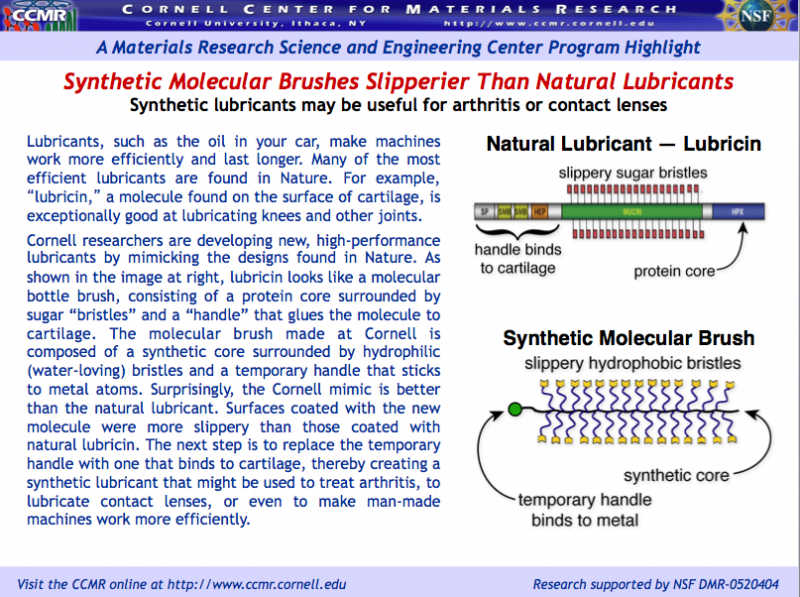
Lubricants, such as the oil in
your car, make machines work more efficiently and last longer. Many of the most
efficient lubricants are found in Nature. For example, "lubricin," a
molecule found onthe surface of cartilage, is exceptionally good at
lubricating knees and other joints.
Cornell researchers are developing new, high-performance lubricants by mimicking the
designs found in Nature. As shown in the image at right, lubricin looks like a
molecular bottle brush, consisting of a protein core surrounded by sugar
“bristles” and a “handle” that glues the molecule to cartilage. The molecular
brush made at Cornell is composed of a synthetic core surrounded by hydrophilic
(water-loving) bristles and a temporary handle that sticks to metal atoms.
Surprisingly, the Cornell mimic is better than the natural lubricant. Surfaces
coated with the new molecule were more slippery than those coated with natural
lubricin. The next step is to replace the temporary handle with one that binds
to cartilage, thereby creating a synthetic lubricant that might be used to
treat arthritis, to lubricate contact lenses, or even to make man-made machines
work more efficiently.